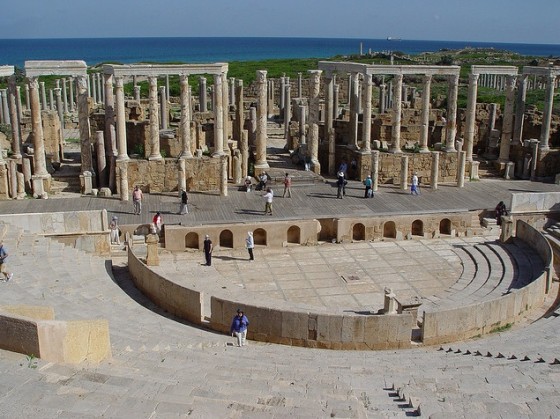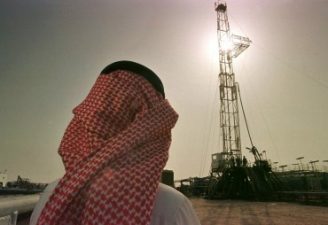 Known for bulldozing archeology ruins into the sea, is it hello BP and bye bye Appolonia? Libya’s ancient archeological sites under threat from offshore oil spills.
Known for bulldozing archeology ruins into the sea, is it hello BP and bye bye Appolonia? Libya’s ancient archeological sites under threat from offshore oil spills.
British Petroleum (BP), whose Deepwater Horizon offshore oil well was spewing thousands of barrels of oil into the Gulf of Mexico for more than five months, was at the same time involved in undersea energy exploration and drilling in the Mediterranean Sea off the coast of Libya. Some conspiracy theorists have even proposed that the UK released an imprisoned terrorist to soften future oil business between Libya and the British country. But before we get ahead of ourselves…
Preservationists have woken up to the fact that BP oil drilling off Libya’s coast and beach areas, contain many ancient archeological sites (underwater and on land) that would be severely damaged in the event of a major oil spill. This danger was pointed out by Treehugger where it was reported that archeologists are “sounding the alarm” in regards to these undersea drilling operations. Ancient remains of the Greek and Roman provinces of Ptolemais and Cyrenaica are at stake.

Libya, like neighboring Tunesia had thriving civilizations dating back to ancient Greek, Phoenician, and later Roman civilizations. According to the UKs The Independent , the Libyan coastal and undersea archeological sites, including the ancient port of Appolonia (a harbor town in the ancient province of Cyrenacia) are “very fragile” and could be devastated by a severe oil spill.
The concern by environmentalists and archeologists has been heightened even more due to announced plans by BP to drill wells even deeper than the il- fated one off the American Louisiana coast, from which the total environmental damage is still being assessed. What makes matters worse, Libya does not presently have a contingency plan to deal with oil spills; and has in the past, according to Dr. Nic Flemming, a British archeologist, literally “bulldozed archeological sites into the sea complete with columns and mosaics, to make way for a new holiday resort.”
Libya appears to be more interested in economic development, at the expense of these invaluable historical sites; many of which were further destroyed in the 6th and 7th centuries CE by the Islamic conquests. To make matters even more intriguing, Libya is reported to be interested in buying a stake in BP, whose shares took a beating during the 5 month oil spill crises.
Damage from a serious oil spill off Libya’s coast would affect the entire Mediterranean Sea, which has been itself the subject of a number of critical environmental issues, including marine pollution and offshore drilling for natural gas off Israel and other locations.
Regarding the future of Libyan archeological sites, as well as those in neighboring Tunisia – where the ancient Carthaginian Empire was centered – take into consideration that plans for dealing with an oil spill in Libya “had been reviewed” by BP officials in the wake of the Deepwater Horizon spill.
The question is whether this “review” would result in any better ways to deal with as serious oil spill, especially off the shores of a country that literally bulldozes precious archeological relics straight into the sea.
Read more on Libyan offshore energy exploration:
Libyan Oil Clout Pushing for Buying a Stake in BP
BP to Drill Even Deeper off Libya’s Coast
Libya Goes Ahead With BP Drilling Agreement Despite Gulf of Mexico Oil Spill
Bottom image of Leptis Theatre via dankate



